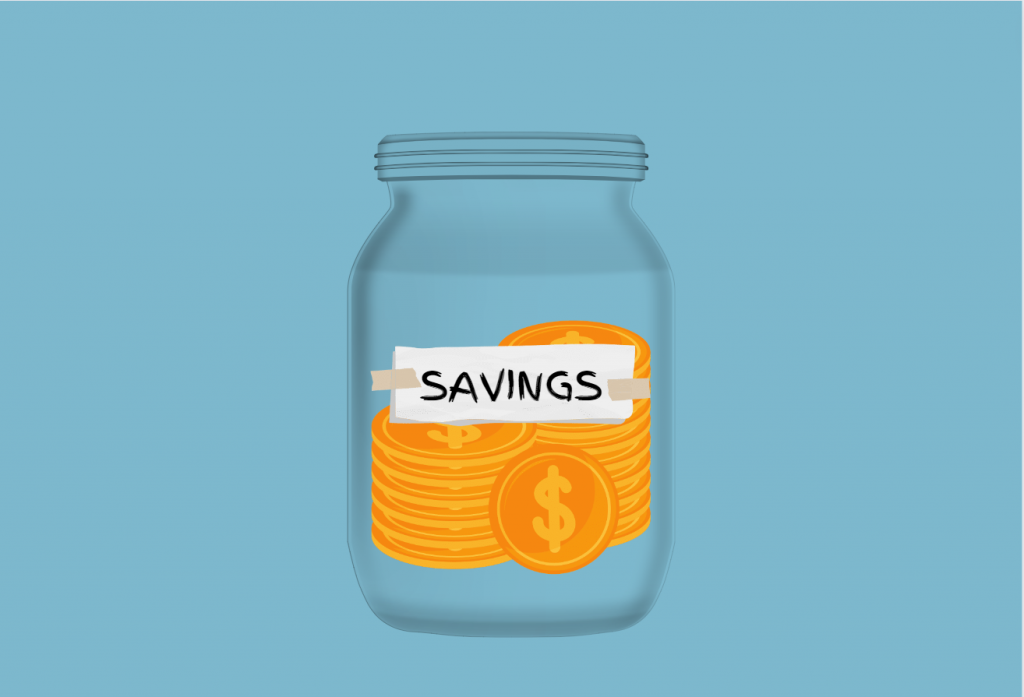

There could be any number of reasons you’re struggling to get ahead, so let’s unpack a few money-saving problems and their solutions.
For some, budgeting is a pretty inherent life skill. For others, it’s a wacky talent that eludes them - and it can often be the root cause of several financial dramas.
You might be running into savings complications because you have more money going out than you have coming in. The sheer volume of transactions can be daunting, and it’s sometimes easier to bury our heads in the sand and forget it’s happening.
Because it’s not just big-ticket costs like rent and energy bills, it’s also your sometimes-used Netflix subscription, coffee and dinners out, food shopping and so on.
You might also like:
> No ledger? No worries! 5 ways to boost your financial cred with a landlord
> The 30% rule: How much can I afford to spend on rent?
> Can I improve my credit score by paying rent on time?
100%, budgeting should have made it onto the school curriculum in a meaningful way alongside other life skills. But thankfully, the process, once mastered, can go a long way to alleviate money pressure.
Sit down and spend an afternoon sorting through a month’s worth of transactions (a fancy app or pen and paper work equally well), and you might be amazed at how quickly things come together.
Having all your money in one bank account is the first issue. When your paycheck falls in one big lump sum into that main account, chances are you’ll spend it on impulse purchases, making it really hard to save money.
But you can’t spend money that’s not there… right? Most banks will let you set up automatic transfers between different accounts. You could say, “Fortnightly, on a Wednesday, take $100 from my main account and transfer it to my Emergency Fund.”
The key here is not to outspend your salary. So, save money by having it automatically deducted - and then, whatever you do, don’t touch it.
If you’re lucky, you might be in for a nice tax refund this new financial year. Or perhaps you land a stimulus check or payment for a freelance gig. This money feels like ‘extra money’ that you didn’t count on and, if you’re like many people, will immediately think it’s OK to blow that on something. We get it. The temptation’s a real thing.
Sure, sometimes it’s healthy to spend a bit of that money, but if you’re craving some future-proofing, consider that money as well-spent by dropping it into the right savings accounts.
This is especially important if you’re trying to get out of credit card debt - you can’t afford to think of it as windfall money. Steamrolling that debt money is part of the key to your financial freedom. So try sticking that money in a savings account and think about how to proportion it.
If the biggest challenge for you right now is lacking the motivation to sock away a reasonable amount for financial security, practice visualising what that savings will earn you down the track when that nest egg will come into its own.
But if that feels too far away, choose something that’s a tangible goal—buying a car in cash or a home deposit. Or save for something closer again - maybe you just want a new dinner set or to upgrade your phone at the end of the year.
Taking a minute to set goals helps flex your savings muscle for some of those bigger savings buckets down the track. Goals are a great way to visualise the eventual payoff for a temporary sacrifice.
Do you think you’re a bit rubbish at saving money because you’ve missed some big secret everyone knows? Chances are, you’ve also been losing valuable savings to services you’ve forgotten about.
Don’t get us wrong, subscriptions can be great. We’d be lost without Spotify and Netflix, and when chosen carefully, some subscriptions can save you a heap of money in the long run. It costs a chunk to go to a cinema, so having a good streaming service on hand is smart.
You might also like:
> Rent hacking: Negotiate your way to cheaper rent today
> Love Afterpay? We do too. But could it affect your chance of buying a house?
> Point hacking: Earn rewards by paying your rent with a credit card on RentPay
But by the time you’ve weighed up your music streaming, health and fitness programs, razor subscription, and meal box delivery, the reality is that your bank account is getting hit up each month. If you forget to cancel these, you’ll still get charged, and that’s money down the drain.
Check out your transaction history and decide if there’s anything in there you no longer use or fully need right now. Then find a very large budgetary guillotine and cut that list right now! Don’t be fooled by their ‘please don’t go’ outcry and ultra-cheap offers. Cancelling should be a pain-free experience and result in more money saved.
There’s no one right or wrong way to think about money because we all have wildly different relationships with it. It’s something that will vary depending upon your circumstances and also how you were raised. The important thing to remember if you want to become a better saver is that you need to maintain it. Getting into the right frame of mind with your newly-discovered good financial habits will help carry you through on that journey.
Remember the reason you wanted to be better at saving in the first place. Don’t go to the extreme and start living without spending money. Unrealistic targets rarely drive results - slow and steady is the way to go. If you have a money windfall, treat yourself but keep on track with your objectives. And finally, don’t beat yourself up if you lose your way. Small steps can make all the difference!
Good luck!